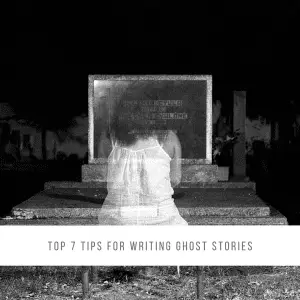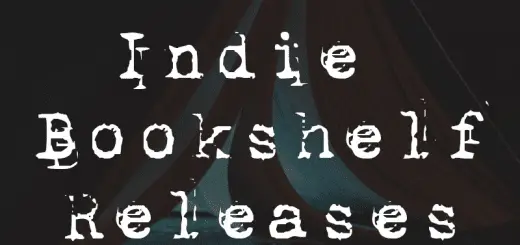Top 7 Tips For Writing Ghost Stories

Top 7 Tips For Writing Ghost Stories
Read on for our top tips on how to write a ghost story. Your first step should always be to define a ghost story to yourself, but you should know how to proceed afterwards. The best ghost stories are ones that are well-planned. Use our tips to plan yours now.
Choose Your Tone
The first thing you need to do is choose your tone. This is the same whether you are looking at essay papers for sale, or figuring out how to write fiction.
The tone of your ghost story is very important. It’s the first clue many people have about your work. People who want a comedic ghost story, for example, aren’t going to want southern gothic. People who want a tragic story of lost love won’t be happy if they accidentally picked up a cowboy western ghost story.
You need to choose what tone to use before anything else. Ghost stories do have some rules around them. Knowing what tone you are going to go for shows you what rules you need to follow. Knowing what rules you need to follow give you the best chance of creating a coherent ghost story.
Give Your Ghost a Life Story
As in life, so in death. You may not think that your ghost requires a backstory, but he\she\it definitely does! Any good ghost story writing gives the ghost a life story, because that’s what makes it real.
Giving your ghost a life story opens up so many possibilities. Maybe your ghost is involved in events for completely unrelated reasons, but they don’t have to be! Having a backstory means that, if you want, you can tie the events of the story into it. Maybe your ghost is bound to a house because their child died there, or maybe they have to fulfil a deal with the devil. Just come up with an idea for a backstory, and let your mind roam. There are so many possibilities you won’t know what to do with them.
Tie it To a Specific Location
The best stories are often the ones which are most contained in terms of location. We are all aware of the huge scope of movies like. There is space for both kinds of stories to exist.
More than that, think of the different genres of horror and ghost stories. Many of them are centred on particular locations. Gothic horror is normally focused on a house, while southern gothic can take in whole towns. Tying things to one specific location makes it that much easier to create atmosphere, and atmosphere is hugely important in a ghost story.
Using a specific location means that you can delve into some of the local folklore in your ghost story. This adds an additional flavour for your readers, and makes the world seem much more real.
Make Your Readers Breathe Faster
We are all used to jump scares by now – maybe too used to them. The key point in writing any ghost story is that you need to create a response in your readers.
This is another reason to tie your ghost story down to a certain location and tone. Both of these things inform the ways in which you induce fear. The primary reason that people read ghost stories is that they want to be scared. They want to feel the creepy atmosphere, they want to walk along with the characters not knowing if there’ll be a ghost on the next page! You need to create some kind of fear response in your readers, otherwise your ghost story won’t work. People want to breathe faster, to feel as if they themselves are about to see a ghost!
Set Some Rules
Writing needs to have rules if it is to work properly. Ghost stories are fighting an uphill battle from the moment you write them, simply because they involve ghosts. If you make some internal rules for your world, and stick to them, people will find it much easier to suspend their disbelief and read on without question.
The rules don’t need to be complicated. There don’t even need to be too many of them. Just remember that once you make a rule, you need to stick to it. If you don’t, people will find themselves taken out of the story. Rules can make your story a lot easier to write as well. Just write within the framework you set down for yourself, and watch the story take form. Rules can be very helpful in writing.
Avoid Clichés
Many people ask how to start a ghost story. One of the main answers is this: avoid clichés like the plague!
Clichés can be very helpful, it’s true, but they are clichés for a reason. Some stories have managed to incorporate these things into their stories very well. Some have even managed to make a cliché into a hilarious part of their story.
If you are just starting out in ghost stories, you shouldn’t do this. It takes a lot of familiarity with this type of writing before you can do it justice. If you avoid these types of clichés, then you stand a much better chance of writing a good story. It’s honestly that simple when it comes to writing. Reading a cliché used well can be a fun experience, but most people prefer to read a good story.
Do Your Research
Do you want to know how to write a good ghost story? It’s very simple. Do your research. Make sure you know everything there is to know about the characters, history, and location of your story.
Research is important for any story, but it can be particularly important for a ghost story. Say you are writing a story about the ghost of a young woman from the eighteenth century. Say your setting is the current day. You need to be absolutely sure you know that ghost would look and act, and how the present-day characters would react to it. Plenty of research is key, particularly if the ghost’s backstory impacts the plot in any way.
Research should always be an important part of your story. You’ll find that your writing process becomes much easier when you have everything at your fingertips.
It’s Time for Spooky Writing
Ghost fiction is always popular among readers. It’s not just something for Hallowe’en, though it was much more popular around that time. Hopefully our tips will be helpful to anybody looking to either start writing, or improve their writing. You just need to take it one step at a time.
- About the Author
- Latest Posts
The Horror Tree is a resource for horror authors which was created in 2011. The main goal when starting the site was to include all of the latest horror anthologies and publishers that are taking paying submissions. A resource useful for both new and experienced publishers alike looking for an outlet for their written material!












